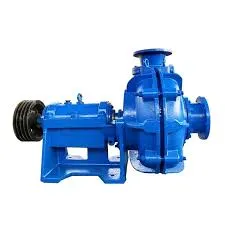Marathi
- Afrikaans
- Albanian
- Amharic
- Arabic
- Armenian
- Azerbaijani
- Basque
- Belarusian
- Bengali
- Bosnian
- Bulgarian
- Catalan
- Cebuano
- Corsican
- Croatian
- Czech
- Danish
- Dutch
- English
- Esperanto
- Estonian
- Finnish
- French
- Frisian
- Galician
- Georgian
- German
- Greek
- Gujarati
- Haitian Creole
- hausa
- hawaiian
- Hebrew
- Hindi
- Miao
- Hungarian
- Icelandic
- igbo
- Indonesian
- irish
- Italian
- Japanese
- Javanese
- Kannada
- kazakh
- Khmer
- Rwandese
- Korean
- Kurdish
- Kyrgyz
- Lao
- Latin
- Latvian
- Lithuanian
- Luxembourgish
- Macedonian
- Malgashi
- Malay
- Malayalam
- Maltese
- Maori
- Marathi
- Mongolian
- Myanmar
- Nepali
- Norwegian
- Norwegian
- Occitan
- Pashto
- Persian
- Polish
- Portuguese
- Punjabi
- Romanian
- Russian
- Samoan
- Scottish Gaelic
- Serbian
- Sesotho
- Shona
- Sindhi
- Sinhala
- Slovak
- Slovenian
- Somali
- Spanish
- Sundanese
- Swahili
- Swedish
- Tagalog
- Tajik
- Tamil
- Tatar
- Telugu
- Thai
- Turkish
- Turkmen
- Ukrainian
- Urdu
- Uighur
- Uzbek
- Vietnamese
- Welsh
- Bantu
- Yiddish
- Yoruba
- Zulu
Telephone: +86 13120555503
Email: frank@cypump.com
डिसेंबर . 29, 2024 21:29 Back to list
septic tank pumper
The Importance of Regular Septic Tank Pumping
Septic tanks play a crucial role in managing wastewater for homes that are not connected to a municipal sewage system. They provide a functioning solution for individuals in rural areas and small communities, where traditional sewer services are unavailable. However, the effectiveness of a septic system depends significantly on proper maintenance, with regular septic tank pumping being one of the most critical tasks homeowners must undertake.
A septic tank is a specialized underground chamber, usually made of concrete, fiberglass, or plastic, designed to treat wastewater from toilets, sinks, and showers. When wastewater flows into the tank, solids settle at the bottom, forming sludge, while oils and fats float to the top, creating a scum layer. The liquid effluent in the middle, once treated by natural bacteria, is then filtered through perforated pipes into the drain field, where it is further treated by the soil.
Over time, the sludge and scum layers accumulate, reducing the tank's capacity to properly treat and manage wastewater. This is where the importance of regular pumping comes in. Homeowners are generally advised to pump their septic tanks every three to five years, although the exact frequency may vary based on the size of the tank, the number of occupants in the home, and the overall water usage. Neglecting regular pumping can lead to numerous issues, including sewage backups, unpleasant odors, and even costly repairs.
One of the most alarming consequences of failing to pump a septic tank is the potential for septic system failure. When the tank becomes full, waste can overflow into the drain field, leading to surface pooling of sewage. Not only is this a significant health hazard, posing risks of waterborne illnesses and environmental contamination, but it can also result in extensive damage to the drain field, which may require complete replacement—a costly and labor-intensive process.
septic tank pumper

Beyond the risks of system failure, regularly pumping your septic tank contributes to a healthier and more efficient system. By removing waste buildup, homeowners help maintain the effective decomposition of solids, allowing beneficial bacteria to thrive and further treat the wastewater. This, in turn, prolongs the life of the septic system and helps avoid premature replacement costs.
It’s important to stress that proper maintenance goes beyond just pumping. Homeowners should also be mindful of their water usage and the types of substances being flushed down the toilet or poured down the sink. For instance, excessive use of chemical cleaners, anti-bacterial soaps, and non-biodegradable items can disrupt the natural balance of bacteria in the tank. Simple practices, such as reducing water runoff, fixing leaks, and avoiding heavy-duty cleaning products, can significantly extend the life of your septic system.
When it comes to finding a qualified septic tank pumper, it’s advisable to do some research. Homeowners should seek professionals who are licensed, insured, and experienced in septic system maintenance. It’s also wise to get multiple quotes and check reviews to ensure you’re getting reliable service.
In conclusion, regular septic tank pumping is an essential aspect of home maintenance for those relying on a septic system. By committing to this responsibility and promoting responsible wastewater management, homeowners not only protect their investments but also contribute to the health and safety of their environment. Maintaining a regular pumping schedule ensures that your septic system operates efficiently, reducing the risk of failures and extending its lifespan, ultimately saving you time and money in the long run.
-
ISG Series Pipeline Pump - Chi Yuan Pumps | Energy Efficiency&Compact Design
NewsAug.03,2025
-
ISG Series Vertical Pipeline Pump - Chi Yuan Pumps Co., LTD.|High Efficiency, Low Noise, Durable
NewsAug.02,2025
-
ISG Series Vertical Pipeline Pump - Chi Yuan Pumps | High Efficiency, Low Noise
NewsAug.02,2025
-
ISG Series Vertical Pipeline Pump- Chi Yuan Pumps Co., LTD.|High Efficiency&Compact Design
NewsAug.02,2025
-
Heavy-Duty Mining Sludge Pumps - Wear-Resistant Slurry Handling
NewsAug.02,2025
-
Horizontal Split Case Pump with GPT-4 Turbo | High Efficiency
NewsAug.01,2025










